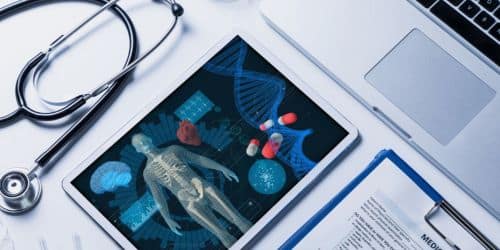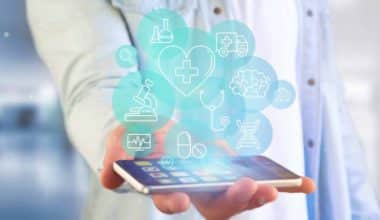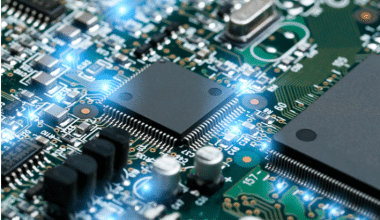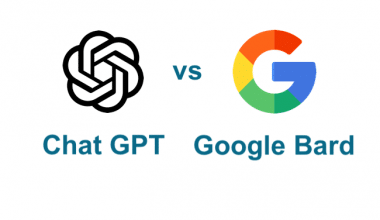Creating a mobile app or website that is specific to a subset of the healthcare industry is an example of custom healthcare software development. The goal of healthcare software development is to facilitate either the patients or the provider.
With the rise of information technology and the benefits it has brought to many sectors of the economy, including healthcare, the primary focus of healthcare institutions and medical businesses throughout the world is now on using IT in healthcare through software systems, also known as healthcare software. Let’s look at the process of healthcare software development.
Healthcare Software Overview
The term “healthcare software” refers to a large group of applications and computer software that aids with various tasks and procedures within the healthcare sector. It includes software programs that make it easier to organize and deliver healthcare services, including everything from treatment for patients and medical documentation to office and business operations. This basically encompasses any software developed specifically for the healthcare industry.
Now that we know this, it’s important to tell the difference between medical software and healthcare software. Medical software is a group of technologies that help improve how well healthcare workers do their jobs, how much money they make, and the quality of care they give. In order to determine the optimal course of therapy, it addresses medical gadgets as well as monitoring and evaluating patients’ medical conditions.
Healthcare software, on the other hand, focuses on electronic medical documentation, visit booking automation, patient satisfaction with particular medical facilities or pharmacies, prescription delivery, logistics, billing, and accounting procedures in medical facilities. In other words, the effective management and provision of healthcare services are heavily dependent on healthcare software.
Types of Healthcare Software
Healthcare software solutions make it easier to control health and lower the risk of making mistakes with medications. These technology developments improve patient care while also assisting in health administration and operations.
Numerous healthcare facilities make considerable use of several prevalent types of healthcare software. The following are some healthcare software available;
#1. Electronic Health Record (EHR) Software
The most well-known and essential form of healthcare software is likely Electronic Health Records (EHR). EHR systems maintain patient information, including healthcare and family history, results of laboratory tests and other types of testing, a history of prescription drugs, and more.
The ability for the patient’s health information to be created, controlled, and shared with other doctors across many healthcare organizations is the most significant EHR function. In addition to automating and streamlining the physicians’ workflow, because they no longer need to ask the same patient for the same information repeatedly, this really improves the patient’s care. EHRs promote better overall patient treatment by lowering mistakes and enhancing patient safety.
When an entirely new medication is prescribed, some EHRs instantly query a common pharmaceutical database to see if there are any potential drug interactions or allergies. This lets the doctor know about any possible problems. Moreso, all of them have a unique way for the patient to get to their data, and most of them have a financial management module for bills and invoicing with information about how to pay.
Clinics and hospitals use EHRs, which usually connect to in-house hospital/clinic management software.
The following are two primary varieties of EHR healthcare software available:
- Electronic patient record software
- Electronic medical records software
#2. Medical Diagnosis Software
This is another useful healthcare system. By enabling healthcare professionals from various departments to upload information about the patient’s health state to the records in real-time, it gives a comprehensive picture of that person’s health.
This automated real-time information sharing across several medical specializations is made possible by the Medical Diagnosis Software and fosters quick and accurate medical identification of illnesses in the hospital setting leading to a more precise solution.
The diagnostic procedure is thorough and connected and the system is powered by AI.
Among a host of functions, the medical diagnosis software allows physicians to carry out these functions;
- Utilize automated data-sharing tools to speak with various medical professionals to get a more complete understanding of a patient’s condition.
- Real-time integration of data from various healthcare providers into the patient’s electronic health record.
- Accelerate data evaluation and exchange.
- Automatically and effectively identify symptoms.
- Reduce expenses and treatment times by automating procedures.
#3. Hospital Management Software
The medical software is essentially a completely integrated system that can manage the entire hospital’s operation, from the administration to the patients. For both inpatient and outpatient departments, this system is capable of handling appointments and digital medical records. Additionally, The tool enables users to manage all aspects of the medical procedure, such as scheduling doctor appointments and surgeries, and other treatments. Hospital management software also has the ability to run the labs and the pharmacy.
Patients can utilize these hospital management software to schedule consultations, check their health information and treatment procedures, and manage their medications because they frequently connect to hospital websites. Patients can now also download medical apps on their cellphones to help them with these exact chores much more conveniently. In some medical management systems, you can even get reminders via SMS for things like follow-up treatments, vaccines, etc.
In general, hospital management software serves to automate routine tasks in medical centers. By automating common administrative duties and effectively managing information pertaining to many elements of healthcare, the program streamlines the management process.
#4. Remote Patient Monitoring (RPM)
In order to obtain more comprehensive information about the patient’s health or even to assist with remote diagnosis based on that information, remote patient monitoring (RPM) can be used to gather information about patients beyond healthcare institutions (clinics or hospitals). The healthcare program for remote patient observation can also tell a doctor or hospital if something is wrong.
The RPM healthcare software enables doctors to follow patients’ information and keep an eye on their health no matter where they are.
Blood oxygen and glucose meters, wearable ECG monitors, heart rate and blood pressure trackers are a few examples of remote patient monitoring equipment. People with persistent medical conditions, those rehabilitating from surgical procedures, and elderly patients can all see a difference in the quality of home-based medical care due to RPM technology and gadgets.
#5. E-prescribing Software
Many hospitals have long used e-prescribing to speed up the distribution of pharmaceuticals and reduce medication mistakes to enhance patient safety. E-prescribing healthcare software enables doctors to monitor prescription histories, update, or revoke them as appropriate in addition to writing new prescriptions. With the use of this healthcare software, doctors can keep in contact with pharmacies about prescriptions.
This software for electronic prescriptions varies from nation to nation as it is heavily based on governmental laws. However, its core function remains basically the same.
#6. Customer Relations Management (CRM) Healthcare Software
Customer relations management healthcare software (CRM) assists doctors and clinics in keeping in touch with their patients. Healthcare customer relationship management software is a digital technology that helps hospitals effectively communicate with their patients. It guarantees that they have quick, convenient access and keeps them fully informed at all times.
Since the CRM healthcare software stores client information such as medical histories, visit records, and invoices, it can provide information on the clinic’s daily operations. They also have the ability to automatically remind patients when their exams or appointments for refills on medications are approaching. Overall, the goal of CRM healthcare software is to make all clinical administrative duties more efficient and to speed up the process of reaching data-driven decisions. CRM healthcare software makes it easier for a clinic to track patient satisfaction, identify recurring issues, and automate administrative tasks.
#7. Medical Billing Software
Utilizing advanced health insurance billing software streamlines the management of payment and transaction information, enhancing accessibility and efficiency
The billing and payment systems used by hospital finance departments must be cutting-edge, dependable, and able to retain precise documentation of payments as well as remind patients of how much they have to pay. The medical billing software is an important part of the software suite for managing a healthcare company. It usually connects tightly to other administrative and EHR systems.
Using medical billing software, information about payments and internet transactions is neatly put together and simple to find. Where there is a need, People who have permission can easily get what they need. Additionally, in some cases, it can also access the medical organization’s overall financial situation.
Healthcare Software Development
Healthcare software development is the process of making software for the healthcare industry. Additionally, healthcare software development, in its broadest sense, also refers to the enormous amount of activities focused on resolving issues inside healthcare organizations and in the interactions between patients and their healthcare providers. The sector includes medical research facilities, clinical services, hospitals, and suppliers of medical equipment.
Healthcare software development creates a whole ecosystem that improves the quality and accuracy of healthcare services. Users of such applications can do everything from keeping patient records to monitoring their health to providing diagnosis and treatment.
Custom Healthcare Software Development
Custom healthcare software development involves addressing particular issues by producing a customized software solution, a mobile app or website that is specifically tailored for an aspect of the healthcare sector. The goal of healthcare software development is to facilitate either the patient’s or the provider’s search for appropriate medical care. In either case, custom healthcare software development produces dedicated programs created and developed to meet the needs of an organization. They work for the company, which gives them specific duties to do.
Making your own healthcare management software from scratch could be the best solution for hospitals and clinics of any size. There are indisputable short- and long-term benefits to investing in the design, installation, and integration of custom healthcare IT solutions. Some of these include;
- Healthcare software that is scalable.
- Lower expenses.
- Improved technical assistance.
Stages of Healthcare Software Development
Healthcare software development often involves various stages and a systematic methodology to assure optimal design, implementation, and deployment.
Information gathering, planning, design and development, and implementation are the various phases of the development process for healthcare software applications.
#1. Information gathering
Developers closely collaborate with stakeholders, end users, and healthcare professionals to fully comprehend their demands. This information-gathering phase entails compiling data regarding the required integrations, user routines, intended functionalities, and compliance with applicable laws.
#2. Planning
Important choices concerning the details of the project are determined during the planning phase, including choosing a platform, figuring out features, developing a schedule, and performing a feasibility analysis.
#3. Design and development
Following the conclusion of the previous stage, the design and development stage starts with an analysis of the data obtained during the planning stage. In this stage, features are developed and accepted, and based on these features, the UI is designed with a particular target audience in mind (like doctors or nurses, for example).
#4. Implementation
Coding is done during the implementation phase using the designs and optimal UX. After each stage is complete, testing is necessary to ensure the final product is ready for release to the public.
Respect for pertinent legal requirements and data privacy laws, such as the US’s HIPAA (Health Insurance Portability and Accountability Act), is crucial throughout the whole software development process. By following these rules, your privacy and patient information will be safe.
Home Healthcare Software
Home healthcare software combines administrative, billing, and patient care procedures on a single platform. It is an information processing system that deals with the storage, retrieval, and sharing, of Information and expertise related to health care and its use for decision-making.
Registered nurses, physical therapists, home health aides, and social workers who provide in-home medical services for senior citizens and adults are the main users of home healthcare software. Home health software choices come in various forms and can be used for both clinical and non-clinical purposes. Software of the sort used extensively in hospitals and medical offices is now also accessible to providers of home healthcare. The home healthcare software offers all the necessary administrative, financial, and medical record-keeping tools that handle day-to-day operations and processes.
Healthcare Software Company
Due to technical advancements in all fields, the healthcare system around the world has undergone considerable modifications and advances. Healthcare software development companies create apps for hospitals, pharmacies, and other healthcare enterprises to simplify their processes. Hence, healthcare software companies are businesses that make and sell software systems, applications, services, and new ideas for the healthcare field.
Some top healthcare software companies include;
ü Epic Systems
In the US electronic health record (EHR) market, Epic Systems claims a share of 28%.
Founded in 1979, an estimated 250 million patients currently have active electronic records in the software; this speaks to its standing and expertise in the sector.
The hospital’s self-named Epic Electronic Medical Record (EMR) system streamlines a variety of tasks, from patient care—including scheduling and registration—to medical centers’ revenue management programs.
ü Cerner Corporation
Cerner Corporation is in charge of 26% of the US EHR market. Founded in 1979 with over 2000+ employees in almost every continent in the world, Cerner creates a range of healthcare solutions, from clinical solutions to patient interaction.
ü MEDITECH
MEDITECH owns 16% of the EHR market. The EHR system from Meditech is designed with hospital management in mind, including planning for human resources, general accounting, supply chain, and health information management.
What Systems Are Used in Healthcare?
Electronic Medical Records (EMR) and Electronic Health Records (EHR)
Systems used in healthcare include;
– Practice Management Software.
– Master Patient Index (MPI)
– Patient Portals.
– Remote Patient Monitoring (RPM)
– Clinical Decision Support (CDS)
What Software Do Most Hospitals Use?
Most hospitals use the following software;
Electronic Health Records (EHR) Software
– Remote patient Monitoring Software
– Hospital Management Software
– Patient CRM Software &
– Medical billing Software
How Is AI Used in Healthcare?
By leveraging AI technologies like machine learning for tasks such as disease diagnosis or drug discovery and development, doctors can more accurately diagnose illnesses and customize treatments to individual patients’ needs.
What Is the Newest Medical Technology in 2023?
A number of med techs are expected to roll out this year which include; FreeStyle Libre 3, Amplatzer Amulet, Aveir, Navitor, CardioMems, and Eterna.
See Also SOFTWARE DEVELOPMENT SERVICES: Best Providers in 2023
To Conclude
Each and every nation, as well as every citizen, need quality healthcare. The effectiveness, precision, and standard of healthcare delivery are significantly improved by healthcare software. Numerous advantages are provided, including better patient care, more efficient business practices, and greater accessibility.
Information technology in the healthcare sector gives up a plethora of new prospects for enhancing clinical welfare and health management by utilizing the power and potential of computational algorithms, data analysis, and digital insights which aid in the development of healthcare software.
Healthcare software has great potential, but it suffers from challenges including high installation costs, poor interoperability, and inadequate data privacy protections.
Healthcare Software FAQs
What Is Health Information Software?
Health information software is the software used to store, share, secure, and analyze patient health information.
What Country Has the Best Healthcare Technology?
According to the FREOPP World Index of Healthcare Innovation, Switzerland has the best healthcare technology.
What Is the Best Technology for Healthcare?
AI integration in healthcare is the best technology.
Which Software Is Used by Doctors?
The electronic medical record (EMR) and electronic health record (EHR) software.






